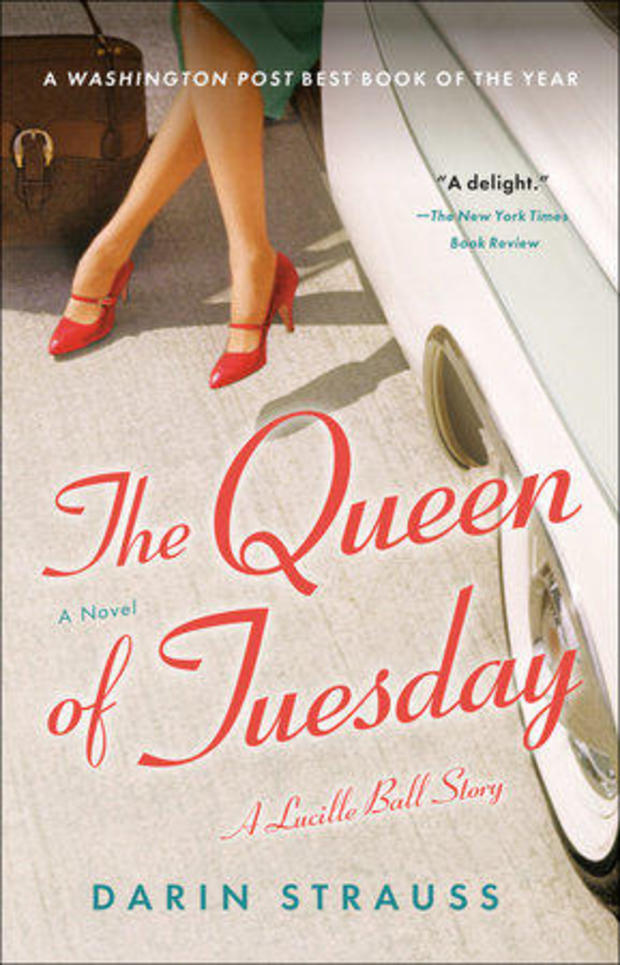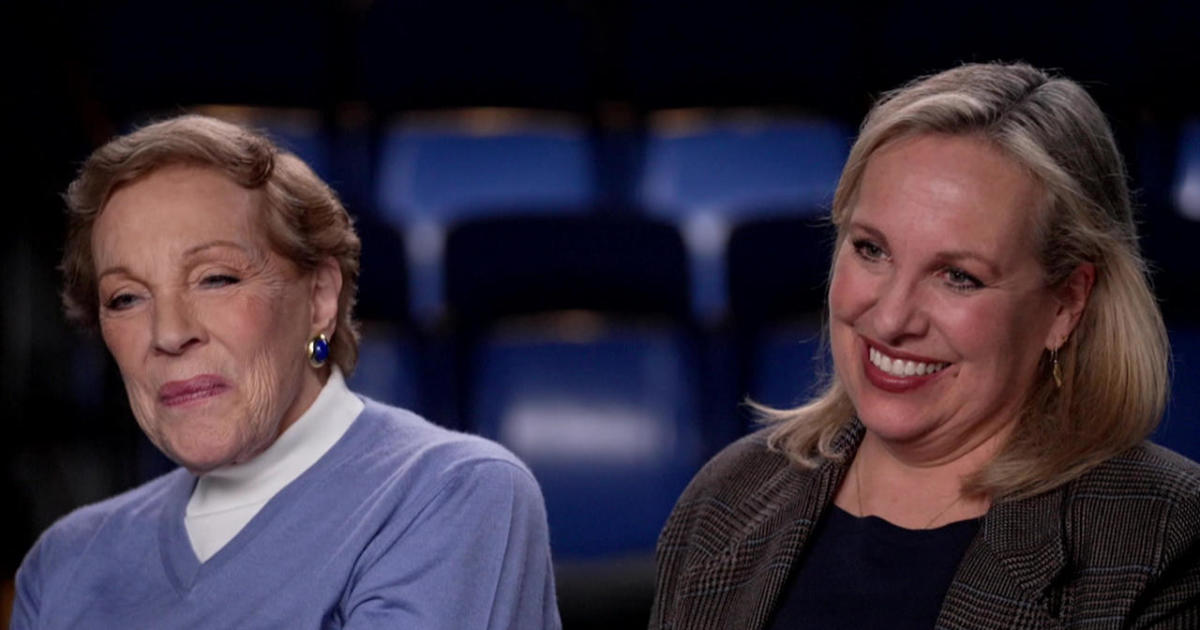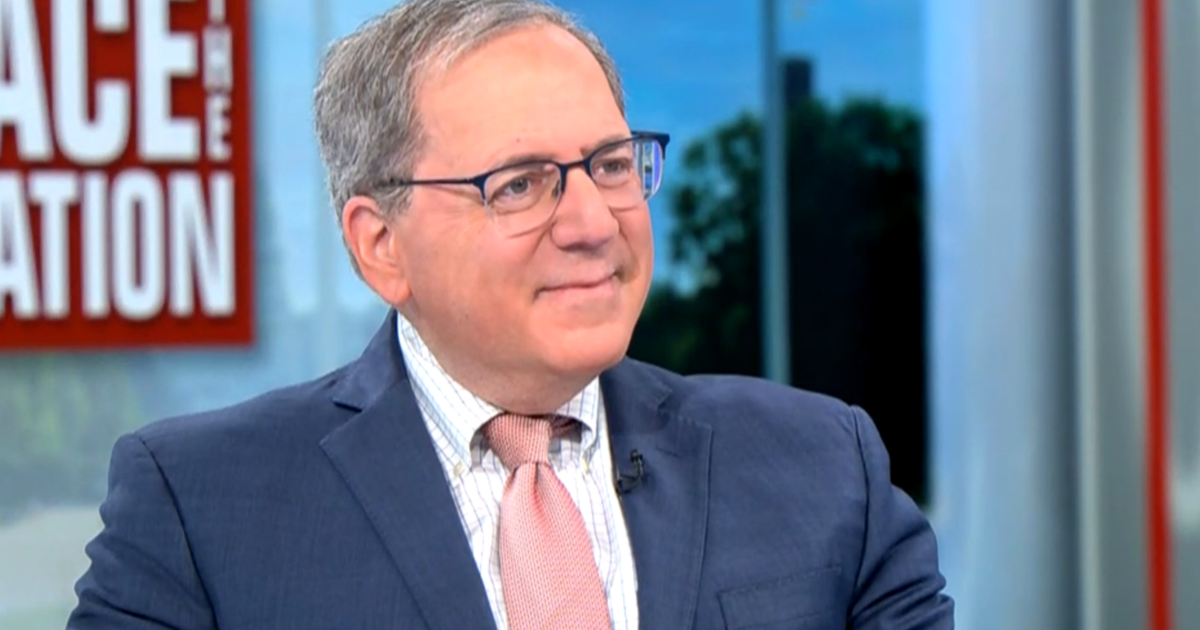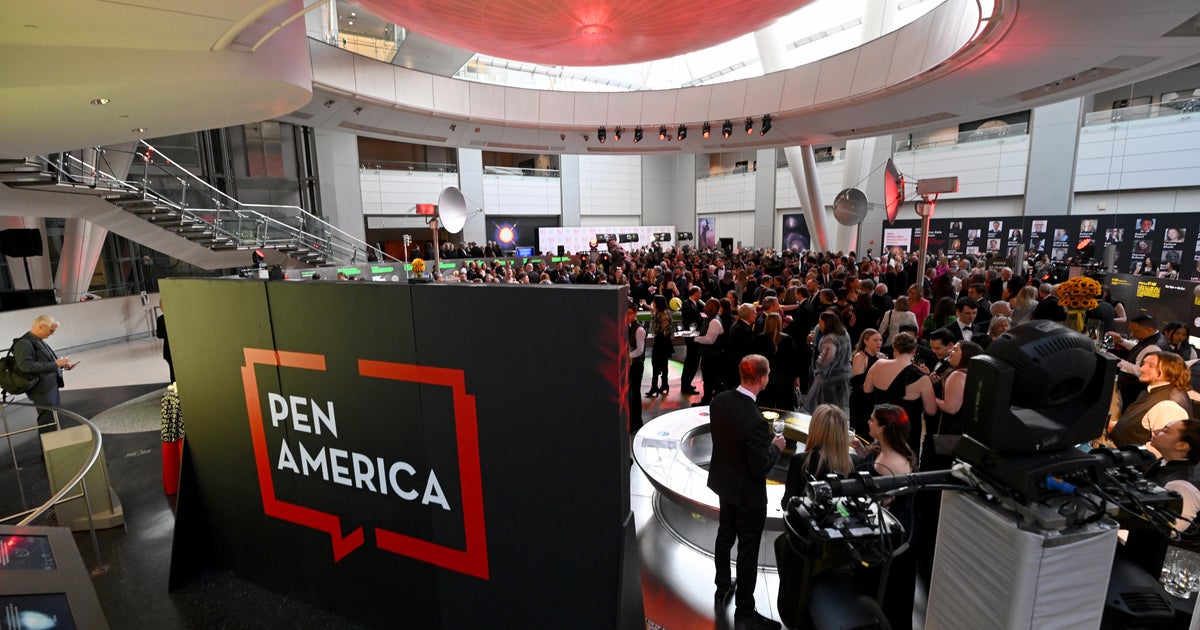Book excerpt: "The Queen of Tuesday" by Darin Strauss
In the new novel "The Queen of Tuesday: A Lucille Ball Story" (Random House), author Darin Strauss conjures a fictional life for one of television's most popular stars: Lucille Ball, whose '50s sitcom "I Love Lucy" would make her an indelible figure in America's pop culture landscape, but whose private life suffered from the infidelities of her real-life (and on-screen) husband, Desi Arnaz.
No worries: Strauss (winner of the National Book Critics Circle Award for "Half a Life") lays out a new path by giving Ball an amour of her own, namely his own grandfather.
Read an excerpt below, and don't miss Jim Axelrod's interview with Darin Strauss on "CBS Sunday Morning" December 5!
STAGE 2, GENERAL SERVICES STUDIO, LOS ANGELES, SEPTEMBER 15, 1951, EIGHT P.M.
FOUR, THREE, TWO—BEEP. Go, go!
The natural thing is to respond. But you can't. You can't just turn your face to the wind of applause.
The soundstage as Lucille crosses it feels awfully big. Red camera lights blink like alien eyes.
Call it, this blinking red evening, her last last chance.
This is not the pilot episode. There had been a pilot episode—she and Desi filmed it back in March. The pilot episode did not air. The pilot episode was terrible. ...
An audience wants you to be happy, and that goes into your blood and makes you happy. But turning your face to applause is not acting. Turning to applause is acting's opposite. But maybe huge stardom—the golden super-prominence she's after—involves more than acting. More, and less. (Though nobody knows yet, in 1951, if TV can bring that intensity of stardom.)
Lucille swears this is beyond the last chance for her.
Her image is going to be sent out via unfathomable technology—or maybe it is fathomable, but in the way prayer is fathomable—and aimed at the montage of states between New York and Los Angeles. States where adults are judged too prissy to see a married couple in their marriage bed. The farm towns, sure, but mainly the hopeful and somehow still rural-in-feel urban centers of greater America, your Lansings, your Tulsas, pale towns—thataway, past Piscataway—where, to hear Lucille tell it, neighbors provide a real community (it's the sense of many hands giving you a boost), which can be lovely until in one way or another you distinguish yourself, and the many hands slide up and seize your throat.
The first line of aired I Love Lucy dialogue—"You didn't get that dish clean, you know"—isn't spoken by Lucille Ball. "There's a schmutz still."
"Nuh-uh, Ethel. That's not schmutz," Lucille, as Lucy, responds. (No, she can't show that the applause makes her happy.) "That's a floral decoration!" Her character is doing housewifely work in the kitchen.
"You sure, Lucy?"
"Positive, Ethel"—pointing to the mark on the plate. "Can't you see? Flowers in a pattern of [pause] gravy." A specially calibrated comic beat. "Okay, fine. Schmutz."
The audience's laughter: respectful, obedient, we'll give you this one. The other speaker is a heavy-haired actress named Vivian Vance—tonight and forever Ethel Mertz.
The script wants Lucille to come off as miserable here, a housewife scrubbing at a greasy life. But why would her character be doing the dishes midafternoon—and accompanied by a friend? Not important. (Let Lucy scrub; Lucille, on the other hand, hasn't cleaned a thing in at least seven years. Ricardo isn't Ball.)
* * * *
Ten years before, the press had named Lucille "Queen of B Movies." They had seized Fay Wray's crown of invisible plastic and set it on Lucille's almost-famous 'do. She can name the coronation date: January 23, 1939. It took Daily Variety two Page 7 sentences to end Wray's brief epoch. Ball, the contract player on Phil Baker's Gulf Headliner, also helmed nine low-budget program melodramas last year, including RKO's Five Came Back. Let's call her the new Queen of . . . Lucille had not wanted the throne—it was shoddy, its legs were s***—yet the world's unseen topplers had come to topple her anyway. Fired from RKO, fired from Paramount.
So, this last, last chance. And Lucille delivers her line.
* * * *
"Ethel, you wanted to ask me something about you and Fred?"
Vivian/Ethel: "Oh, right! About Wednesday evening." That half-decibel-too-loud 1950s TV voice, if a bit mumbled.
Well, if Vivian Vance doesn't want to be here, fine. I mean, if Vivian Vance fails to see the appeal of television. But jeez-o-pete, Lucille thinks, don't just mumble it in. It's odd—crass and superficial—to need to be the most famous person in the world. I know that, Lucille thinks.
"Isn't that your big night, Ethel?" she's saying. Her hair's kerchief comes to top knots like puppy ears.
And Vivian/Ethel is saying: "Yes, Wednesday's our wedding anniversary."
"Yours and Fred's?"
"No, mine and Gary Cooper's."
Laughter even less enthusiastic. Nobody likes dialogue that exists just to tell the viewers who is with whom.
What's more, you can't rig the calendar. Streetcar with Brando, armistice negotiations at Kaesong, Judy Garland at the Palace—Lucille has found herself in a rainy news season; it won't stop drizzling headlines. And, if the time feels kind of event-drenched, how can a never-quite-was become umbrella enough to distract America from the downpour?
Ah, who's she kidding? Lucille knows what her life's real heavy weather is. Had Lucille not wangled it so she and Desi could work together, her marriage would have been all downed trees and power lines, flooded streets. Because, offered distance and opportunity, Desi would cheat up a storm. The TV show was meant to be a kind of hurricane cellar. ("What'm I going to believe," she'd said, "you or my eyes?" Joking even then about his behavior.)
"Why, a fun nightspot is your due," Lucy's now telling Ethel and whoever's watching.
Mary Pickford and Jean Harlow put silly ideas into our brains about what matters, Lucille thinks. Of course it's cockamamie to want that much stardom. All the same ...
Ethel: "That's my point!"
Lucy: "Okay, tell me your plan."
Lucille tries to appear a harried housewife people believe in, while being a star they desire. An apron, a modest kitchen, and full glamour makeup. (The room is only three-walled, as if there has been a shift in the accepted disposition of things.) Doors that won't shut, windows that can't open. She's flanked by gaffers working the light-dim machine; and each set and everything in it has been painted various shades of gray. Audience cigarette smoke looks like pencil lines in the glare. And here she stands before microphones and two hundred spectators, and, oh yes, possible millions at home, thinking, don't squint in the lights, and facing three fearsome archangels, black and humpbacked: the cameras that prowl the stage. You try ignoring all activity. You turn down the flame of charisma just enough and still get the audience to boil like water.
Lucille feels her hands go slick. This show has to work, and, so far, it is not working.
From "The Queen of Tuesday: A Lucille Ball Story" by Darin Strauss. Copyright © 2021 by Darin Strauss. Published by permission of Random House, an imprint and division of Penguin Random House LLC. All Rights Reserved.
For more info:
- "The Queen of Tuesday: A Lucille Ball Story" by Darin Strauss (Random House), in Trade Paperback, eBook and Audio format, available via Amazon and Indiebound




